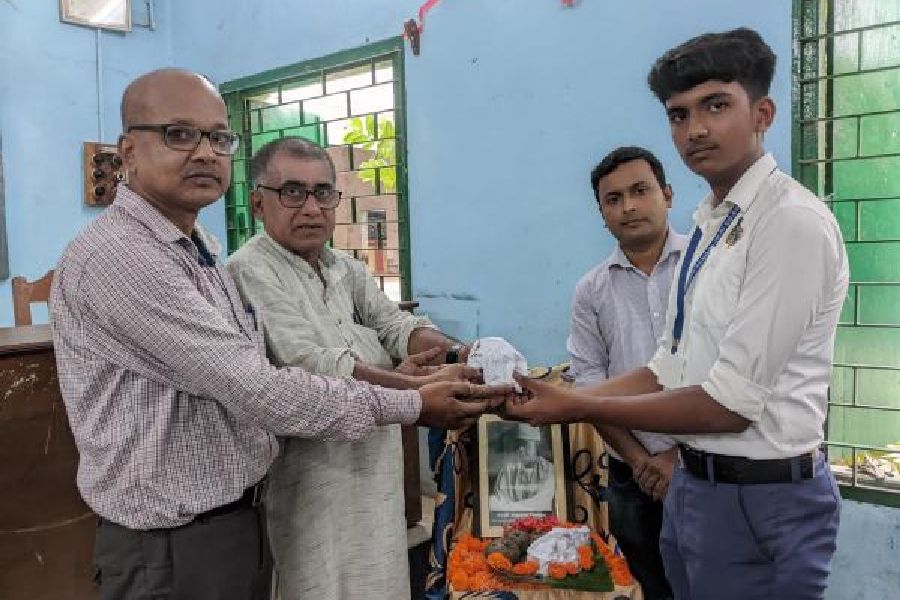A poet's legacy sprouts green shoots of inspiration even after he is long gone.
To mark the 126th birth anniversary of rebel poet Kazi Nazrul Islam (1899-1976), a school in Hooghly district on Monday paid tribute to his legacy in a unique way.
Jirat Colony High School authorities handed over “seed balls” to its students — small balls of soil packed with seeds of various plants — to encourage them to green their surroundings and take a stand for nature.
“These balls are not meant to play, rather boost life. They are actually meant to save the world,” said a teacher during the ceremony organised at the school on Monday.
The students were urged to throw these seed balls on barren land, allowing saplings to grow naturally over time.
"The initiative, conceptualised by the school authorities, draws inspiration from Nazrul’s life as a rebel and his fight against imperialism and communalism," the teacher added.
The school believes that just as the poet’s defiance stood against forces of oppression, this green initiative is a protest against the relentless destruction of nature, particularly the widespread felling of trees in the name of development.
A teacher said that felling greenery threatens ecological balance and human survival.
Each seed ball was filled with seeds like bokul (Spanish cherry), mango, jackfruit, jorul (Queen's Flower), betel nut, cedar, chandraprabha flowers (Yellow Bells) and others. Each was named after Nazrul’s iconic poems such as Agniveena, Samyabadi, Dolonchapa, Sarbahara and others, symbolising the enduring spirit of his ideals.
With Nazrul’s portrait placed before them, the students took a solemn oath to place one seed ball daily on forests, empty plots and roadsides — contributing to the revival of greenery.
Partha Chattopadhyay, the president of the school’s managing committee, explained the deeper philosophy behind the initiative.
“India is independent today, but we are still walking toward self-destruction. We continue to cut down trees indiscriminately. Inspired by Nazrul's rebellious spirit, our students have pledged to become rebels in defense of nature — for a better, more sustainable future," he said.
Biology teacher Satyaki Banerjee stressed the importance of experiential learning.
“At our school, the message of environmental protection is not limited to books. We want education to be rooted in reality. Only when students stand up for society and the planet will their education be truly complete.”
Echoing this sentiment, Chattopadhyay said: “Today’s system is obsessed with marks and grades. But we are forgetting to teach our children how to become humane. We want to restore that balance.”
Headmaster Abdul Sharif Sheikh summed up the school’s mission. "We want to go beyond rote learning. Today’s event is a step toward building a different kind of education — one that nurtures conscience along with intellect," he said.










